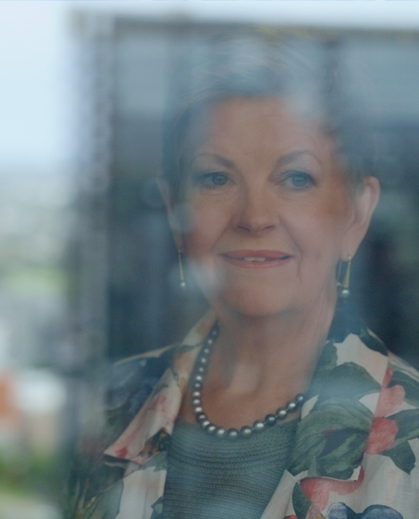Graeme Liebelt FAICDLife, chair of Amcor and former chair of Dulux Group, also sits on the board of Australian Foundation Investment Company. He received an AICD Life fellowship at the Australian Governance Summit in March, in recognition of his significant contribution to current and emerging issues in governance and the AICD, and his work in representing the interests of the AICD in the director community. The former CEO of Orica also contributed to AICD’s delegation to Canberra in 2023.
The most important lesson he has learned in decades of work in boardrooms is how important good governance is to the successful operations of companies and the financial system generally and the consequences when that falters, Liebelt told the AICD in an interview recently.
“I've been around a long time on boards and associated with all different types of organisations. I’ve seen a lot of governance failures and I've seen the cost of those. And it just reinforces just how important that governance is to the trust that everybody's got in the system, whether it be investors or customers or employees or indeed any members of society.”
He says society thrives when there's good governance and when institutions are functioning well. “And it's not just about business. It's about all kinds of institutions, actually. So I think governance is important across society as a whole.”
The role of the director has changed significantly over the past few decades, with higher expectations now and a more difficult environment in the boardroom, due to the need to balance different competing objectives.
“If I go back a few decades, it was simpler in the sense that board members were required to obviously obey the law, but mostly focus on profit and look at the bottom line, improve the efficiencies and so on to make sure we're delivering for shareholders.
“Expectations of corporations have changed a lot and of course that's reflected in the boardroom. And so now the need to focus on objectives beyond profit, other societal objectives, you know, whether it be environmental issues or how you treat employees.
“So it's got more complicated in a way, but it's I think it's an improved environment and I think corporations function better as a consequence.”
Newer directors should not expect to be expert in every topic, he says, but to recognise that they have been selected for that board because they bring particular attributes and need to be confident in those attributes.
They need to feel like they have a contribution to make and that their perspective is valuable, but be aware there are other perspectives as well. “And so find that balance between putting your own view, listening carefully to others and then taking a collegiate view around the table and arriving at the right sort of solutions.”
The biggest challenges in boardrooms are the people decisions such as the selection of the CEO.
“It's a really difficult decision. Nobody's perfect. Nobody has every attribute that you would require in the perfect CEO. And so you're faced with making trade-offs and decisions and that selection is a very important one.”
The process of selecting people around the board table is also often underestimated. “It's really important to get the right combination of skills and experience and different perspectives around the board table. So you need to select people ensuring that they're able to work together, but that they come from different backgrounds and with different perspectives.
Valuing all types of diversity is very important because you get better decisions when you examine decisions from different angles and from different perspectives.
Making big risky decisions which have a real impact on the organisation itself are also difficult, Liebelt adds. “There are decisions where you're taking quite a lot of risk. It reshapes the company for the longer term and managing that risk. Mitigating that risk and thinking it through carefully is always very challenging.”
Latest news
Already a member?
Login to view this content


